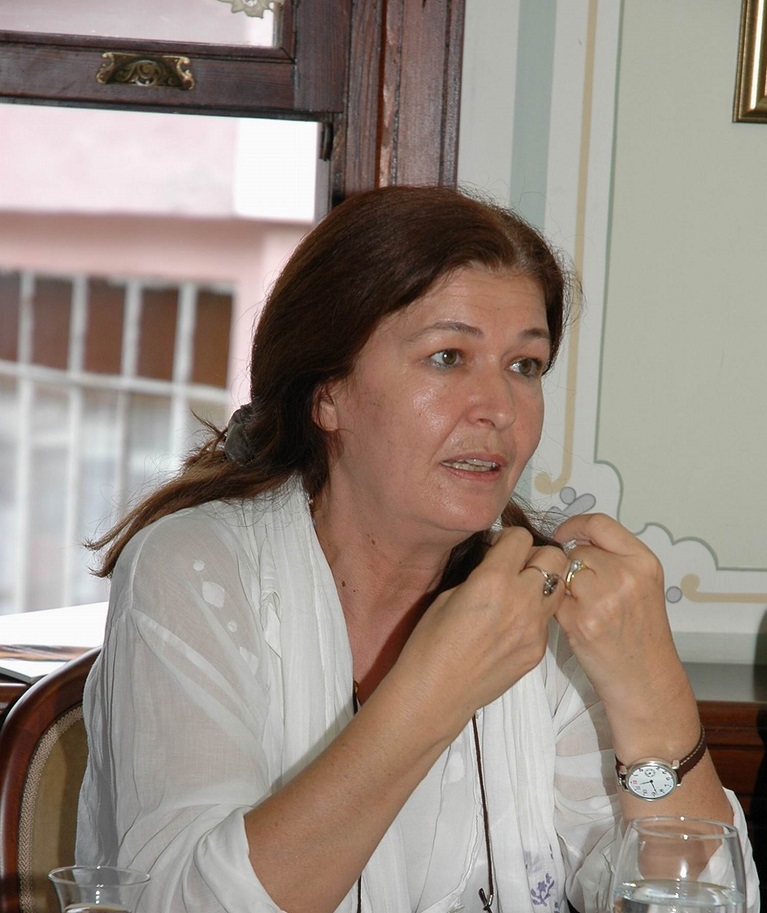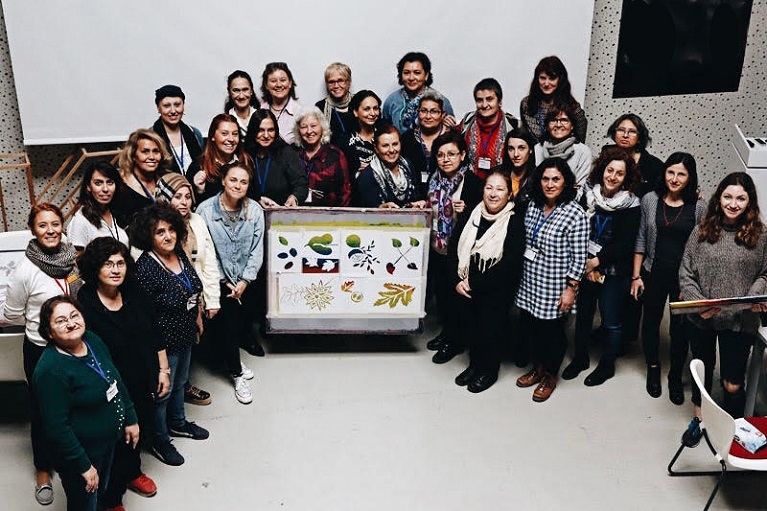Spotlight Interviews with Co-operators
Advancing women’s cooperatives in Turkey
"Spotlight Interviews with Co-operators" is a series of interviews with cooperative leaders from around the world with whom ILO officials have crossed paths during the course of their work with cooperatives. For this issue, ILO interviewed Ms Şengül Akçar, Executive Director of the Foundation for the Support of Women’s Work (FSWW).
Q. What is the women’s cooperative network in Turkey about?

In 2005, the women’s cooperatives came together to create the Women’s Cooperatives Communication Network. In 2014, they established Simurg (Phoenix) Women’s Cooperatives Union as an official secondary level structure. The members of the Simurg Women’s Cooperative Union are 70 women’s cooperatives from 60 provinces of Turkey operating in various economic fields, such as organic agriculture, home textiles and souvenirs, and child care. Simurg aims to increase awareness of the contribution of women’s cooperatives to the country’s economy, improve their institutional capacities, and strengthen communications between them. It also advocates for its member cooperatives’ common needs and interests and creates opportunities for sharing knowledge and experience at the national and global levels.
The Simurg Women’s Cooperatives Union secretariat is based in FSWW. The Foundation plays a facilitating stakeholder role supporting the planning, implementation and co-financing Simurg’s activities. It also supports Simurg in its communications and advocacy activities with a range of stakeholders, including municipalities, governorships, private companies and vocational education institutions, and the Ministry of Customs and Trade. FSWW undertakes joint activities with the Simurg Women’s Cooperatives Union on issues such as advocating for an inclusive social cooperative legislation, transferring resources and generating business partnerships.
Q. What are the key challenges faced by women’s cooperatives in Turkey?
Women’s cooperatives can create economic and social opportunities for their members. With an enabling environment they have a great development potential. The challenges to fulfilling their full potential are both internal (financing, expertise and know-how) and external (inadequacies of the policy and regulatory framework).Simurg and FSWW work together to address these difficulties, particularly in relation to the problems arising from the inadequacies of the policy and regulatory framework. We use various platforms to promote and advocate the needs of women cooperatives. We invite the representatives of the government officials and policy makers to our annual meetings. We present our analysis on the social and economic impacts of cooperatives. We also bring in good practice examples from other countries and provide proposals around legislative change.
In our advocacy work for new legislation on social cooperatives, we have underlined the need for various prevention programmes, reduction of compulsory expenses, and provision of special encouragements particularly in public procurement. Some of the changes we have advocated for have been put in place with the support of the Ministry of Customs and Trade, and they have brought about positive changes in terms of increased awareness within general public as well as other public institutions.
Q. What has been the motivation of FSWW in supporting women’s cooperatives?

As a result, the cooperative model was adopted as an organizational option by the women to develop common solutions to end their economic and social exclusion. In 2002, the first women’s cooperatives were established. Since then, we have provided training, counseling and financial support to women’s cooperatives in management, business development and marketing. FSWW supports the Simurg Women’s Cooperatives Union’s secretariat in their advocacy and communication efforts. As a foundation, we support the implementation of sustainable development of women cooperatives in Turkey.
Our goal is to expand the women’s cooperatives model across the country, bring about social and economic returns to women and to increase the contribution of women cooperatives to the economy. To achieve this, we put an emphasis on R&D, policy advocacy, and creating business partnerships between the private sector and women’s cooperatives. We are looking into the participation of women’s cooperatives in the care economy and in the renewable energy sector as well, where we are already undertaking pilot initiatives.